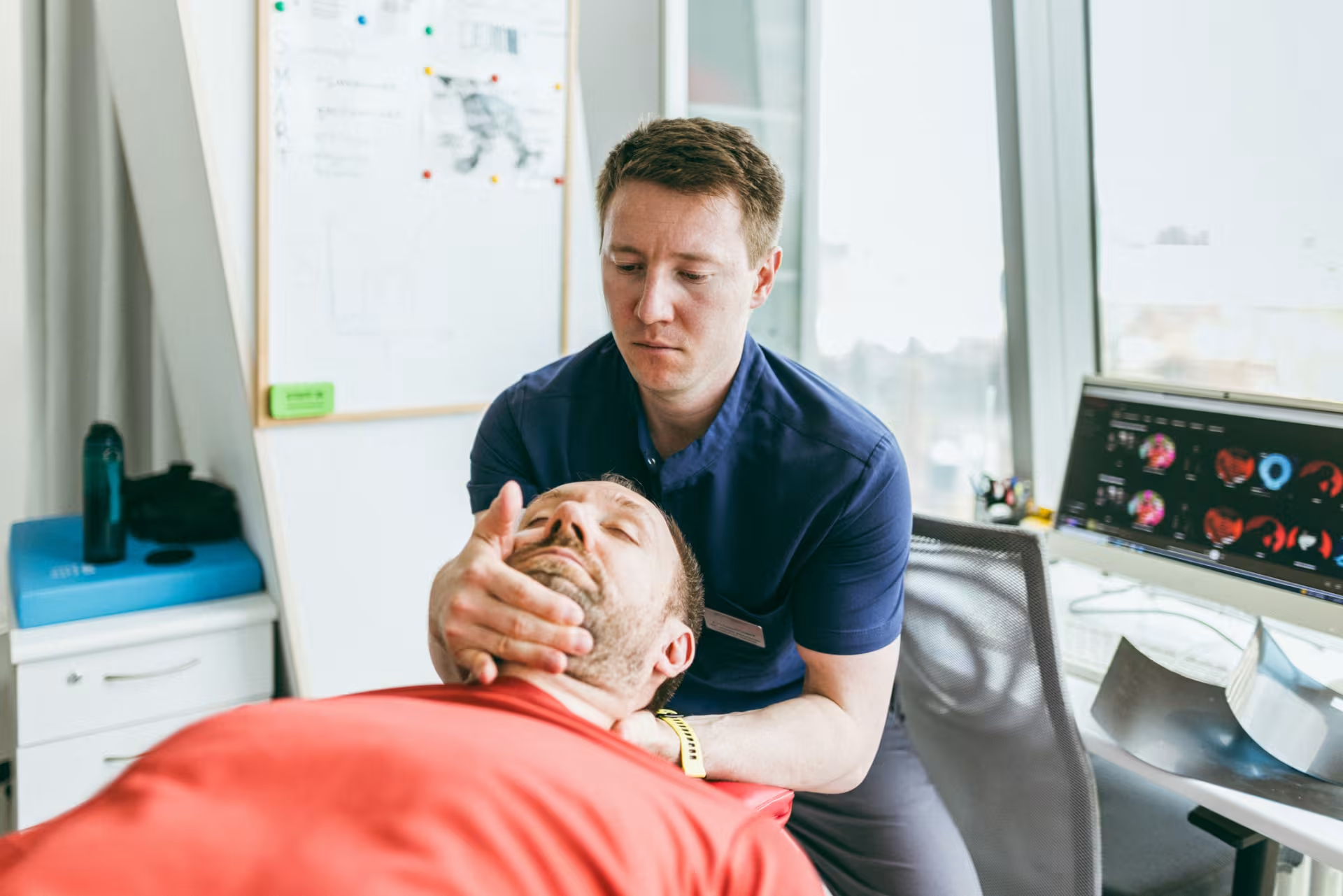
How To Become a Chiropractor
What Is a Chiropractor?
A chiropractic physician is a medical professional who specializes in the assessment, diagnosis, treatment and prevention of disorders, injuries and conditions that affect the neuromusculoskeletal system. This includes bones, muscles, tendons, ligaments and nerves all through the body — not just in the spine.
Approximately three in four chiropractic patients describe their care as “very effective”(See disclaimer 1)
What Do Chiropractors Do?
Chiropractors diagnose and treat issues related to the neuromusculoskeletal system, with a focus on relieving pain in the back, neck and joints to improve overall function and mobility. They perform physical exams, adjust the spine and joints, use therapies like heat, cold or electrical stimulation and offer lifestyle advice. Some also specialize in areas like sports or nutrition and may manage their own practice.(See disclaimer 2) It is common knowledge that chiropractors are qualified to treat back pain. Yet, this is an oversimplification of what they do.
Chiropractors attend to holistic health — the patient’s overall wellness — and can help them improve their well-being through:
Spinal adjustments
Their most well-known treatment is the spinal adjustment, which can provide rapid relief of symptoms.
Education
They can help patients lead a healthier lifestyle by educating them about nutrition, exercise and sleep habits.
Pain relief
They can accomplish this by aligning the body and educating individuals about ergonomics to maintain healthy posture and movement.
What Experience and Education Does a Chiropractor Need?
The road to becoming a chiropractor can seem complicated. However, it’s important to understand the steps to establish your educational and professional plan and make your dream a reality.
High School Diploma
College Degree
Professional Certifications
Best Degrees for a Chiropractor
When selecting an undergraduate major, it may be ideal to choose one that includes a strong focus on the sciences, as these courses are often required for admission into chiropractic school.
Earning an undergraduate degree in one of the following fields may help best prepare you to enter chiropractic school:(See disclaimer 4)
Biology
Kinesiology
Exercise Science
GCU Recommends These Degree Programs for a Chiropractor
Although GCU does not offer a chiropractic degree program, you can enroll in one of our other bachelor's programs to gain the foundational knowledge you'll need for chiropractic school later in your studies.

What Skills Does a Chiropractor Need?
Aspiring chiropractors are often drawn to this specialty because they have a strong desire to help other people achieve better health. While you’re working through the steps to become a chiropractor, you can cultivate certain skills and traits that can help you be more effective in your professional role.
Characteristics and skills of an effective chiropractor include the following:
Attention to detail
Dexterity
Interpersonal skills
Business sense
Decision-making skills
Where Do Chiropractors Work?
According to the U.S. Bureau of Labor Statistics, approximately 60% of chiropractors work in an office setting.(See disclaimer 5 )These offices are often privately owned or part of group practices, allowing chiropractors to treat patients in a focused clinical environment and manage their own schedules.
Median annual wage for chiropractors as of May 2024(See disclaimer 6)
Estimated job growth for chiropractors from 2023 to 2033(See disclaimer 7)
Explore More on Chiropractors
Discover more about other medical careers and their role in making a difference.

Both chiropractors and physical therapists offer drug-free, nonsurgical care focused on restoring patient mobility, managing pain and preventing injury. While chiropractors emphasize spinal manipulation, physical therapists use exercises and rehabilitation techniques. Discover which career could be the best fit for you.

Pre‑med is an academic track — not a specific major — focused on completing courses like biology, chemistry, physics and biochemistry, alongside extracurriculars such as clinical experience, research and MCAT prep. Discover what elements can help students build a competitive medical school application.

While occupational therapy takes a holistic approach to care, focusing on helping individuals regain independence, physical therapy centers on restoring mobility and physical function through therapeutic exercise. Discover key differences between occupational therapy and physical therapy and which could be right for you.

Start your path toward a chiropractic career and help others live healthier, pain-free lives.
- American Chiropractic Association. (n.d.). Key Facts and Figures About the Chiropractic Profession. Retrieved Aug. 7, 2025.
- U.S. Bureau of Labor Statistics. What Chiropractors Do. Occupational Outlook Handbook. Retrieved July 28, 2025.
- National Board of Chiropractic Examiners. (2023). Chiropractic Education. Retrieved in March 2021.
- Natural Healers. (n.d.). Chiropractor Schooling Requirements (Degrees & How Long They Take). Retrieved July 27, 2025.
- U.S. Bureau of Labor Statistics. Work Environment. Occupational Outlook Handbook. Retrieved July 28, 2025.
- The earnings referenced were reported by the U.S. Bureau of Labor Statistics (“BLS”), Chiropractors, as of May 2024, retrieved July 27, 2025. Due to COVID-19, data from 2020 to 2024 may be atypical compared to prior years. BLS calculates the median using salaries of workers nationwide with varying levels of education and experience. It does not reflect the earnings of GCU graduates as chiropractors, nor does it reflect earnings of workers in one city or region of the country or a typical entry-level salary. Median income is the statistical midpoint for the range of salaries in a specific occupation. It is very unlikely that a median salary will reflect an entry-level salary. It represents what you would earn if you were paid more money than half the workers in an occupation, and less than half the workers in an occupation. It may give you a basis to estimate what you might earn at some point if you enter this career. Grand Canyon University can make no guarantees on individual graduates’ salaries. Your employability will be determined by numerous factors over which GCU has no control, such as the employer the graduate chooses to apply to, the graduate’s experience level, individual characteristics, skills, etc., against a pool of candidates.
- COVID-19 has adversely affected the global economy and data from 2020 to 2023 may be atypical compared to prior years. Accordingly, data shown is effective September 2024, which can be found here: U.S. Bureau of Labor Statistics, Occupational Outlook Handbook, Chiropractors, retrieved July 27, 2025.

